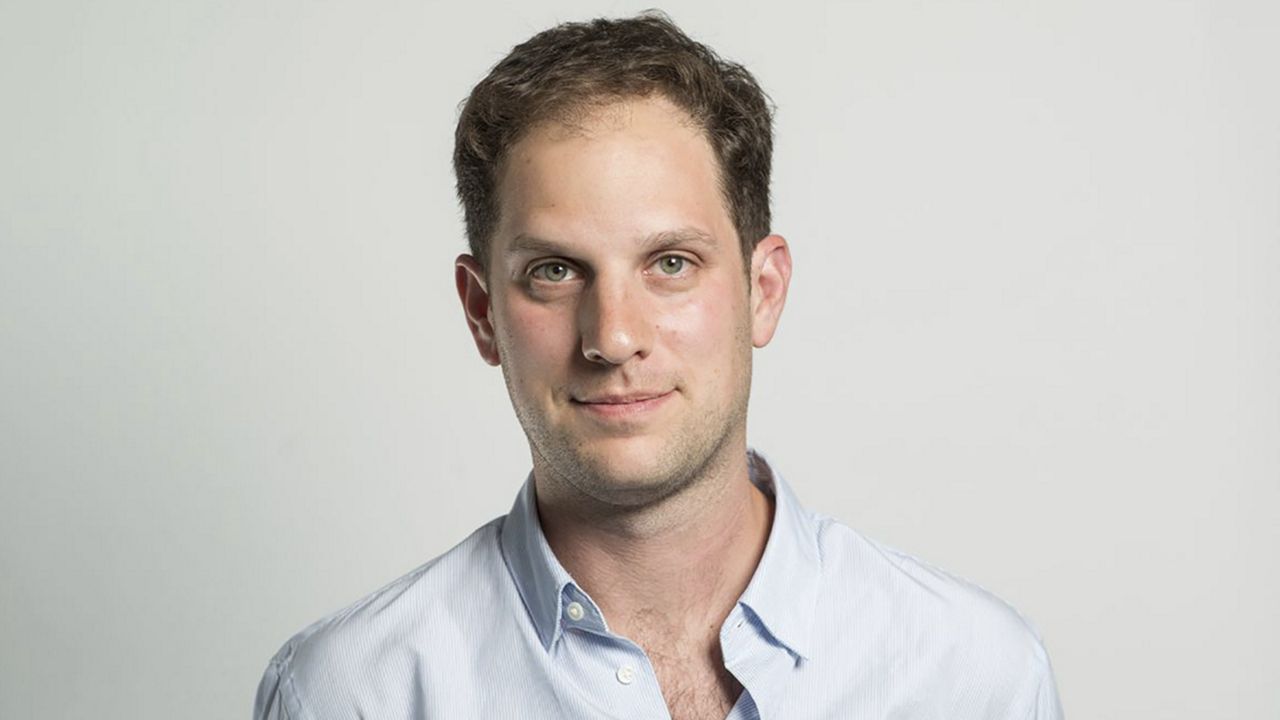Russia might be willing to discuss a potential prisoner swap with the U.S. involving jailed Wall Street Journal reporter Evan Gershkovich after his trial on espionage charges, a top Russian diplomat said Thursday.
Gershkovich, 31, his employer and the U. S. government all deny he was involved in spying and have demanded his release.
Deputy Foreign Minister Sergei Ryabkov told state news agency Tass that talks about a possible exchange could take place through a dedicated channel that Russian and U.S. security agencies established for such purposes.
"We have a working channel that was used in the past to achieve concrete agreements, and these agreements were fulfilled," Ryabkov said, adding that there was no need for the involvement of any third country.
However, he emphasized that Moscow would only negotiate a possible prisoner exchange after a trial. "The issue of exchanging anyone could only be considered after a court delivers its verdict," he was quoted by Tass as saying.
It's not clear how long the investigation could last, but other espionage cases have lasted for a year or more.
In December, American basketball star Brittney Griner was exchanged for Russian arms dealer Viktor Bout following her trial and conviction on drug possession charges. She had been sentenced to nine years in prison and ended up spending 10 months behind bars.
Another American, Michigan corporate security executive Paul Whelan, has been imprisoned in Russia since December 2018 on espionage charges that his family and the U.S. government have called baseless.
During the Griner case, the Kremlin repeatedly urged the United States to use the "special channel" to discuss it and work on a potential prisoner swap, saying such private communications were the only appropriate means for resolution, rather than public statements and speculation.
Gershkovich could face up to 20 years in prison if convicted. Russian lawyers have said past investigations into espionage cases took a year to 18 months, during which time he could have little contact with the outside world.
U.S. Secretary of State Antony Blinken urged his Russian counterpart, Sergey Lavrov, this month to immediately secure the release of both Gershkovich and Whelan.
President Joe Biden spoke to Greshkovich's parents Tuesday and again condemned his detention. "We're making it real clear that it's totally illegal what's happening, and we declared it so," he said.
On Monday, the U.S. government declared Gershkovich as "wrongfully detained," a designation that means that a particular State Department office takes the lead on seeking his release.
Russia's Federal Security Service, or FSB, arrested Gershkovich in Yekaterinburg, Russia's fourth-largest city, on March 29. He is the first U.S. correspondent since the Cold War to be detained in Russia for alleged spying.
The FSB, a successor agency to the Soviet-era KGB, accused Gershkovich of trying to obtain classified information about a Russian arms factory.
On Thursday, Kremlin spokesman Dmitry Peskov again emphasized Moscow's claim that Gershkovich was caught red-handed. He denied reports that Russian President Vladimir Putin had personally sanctioned Gershkovich's arrest.
"It's not the president's prerogative. It's up to the special services, who are doing their job," Peskov said in a conference call with reporters.
The U.S. has pressed Russian authorities to grant U.S. consular access to Gershkovich. Russian Foreign Ministry spokeswoman Maria Zakharova said Wednesday that Moscow would provide it "in due time in line with the consular practices and Russian legislation."
Gershkovich is held in Moscow's Lefortovo prison, which dates from the czarist era and has been a terrifying symbol of repression since Soviet times.
Whelan was also held in Lefortovo until he was sent to other prison to serve his 16-year sentence after his conviction in 2020.



